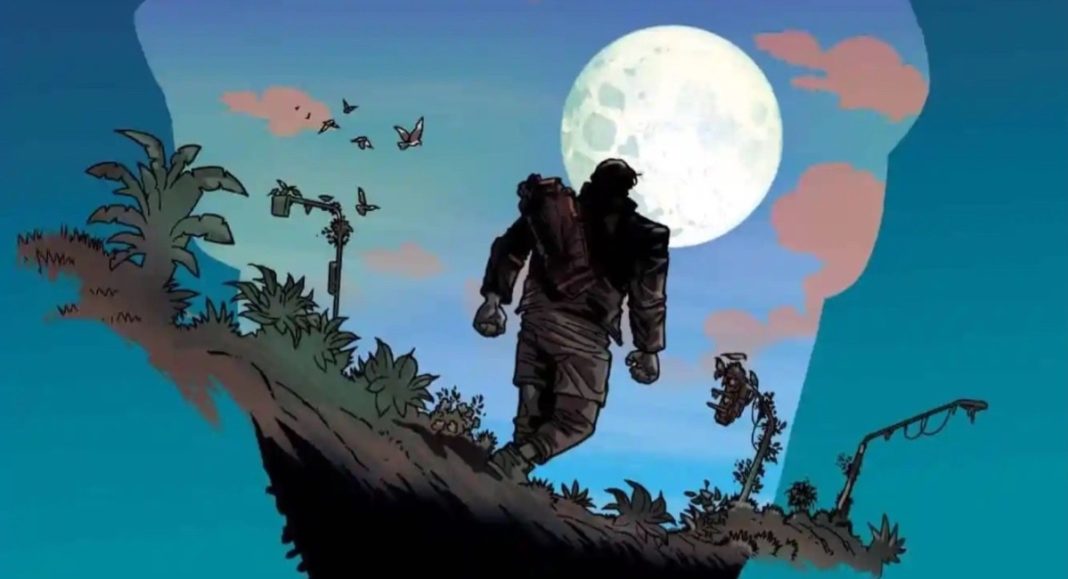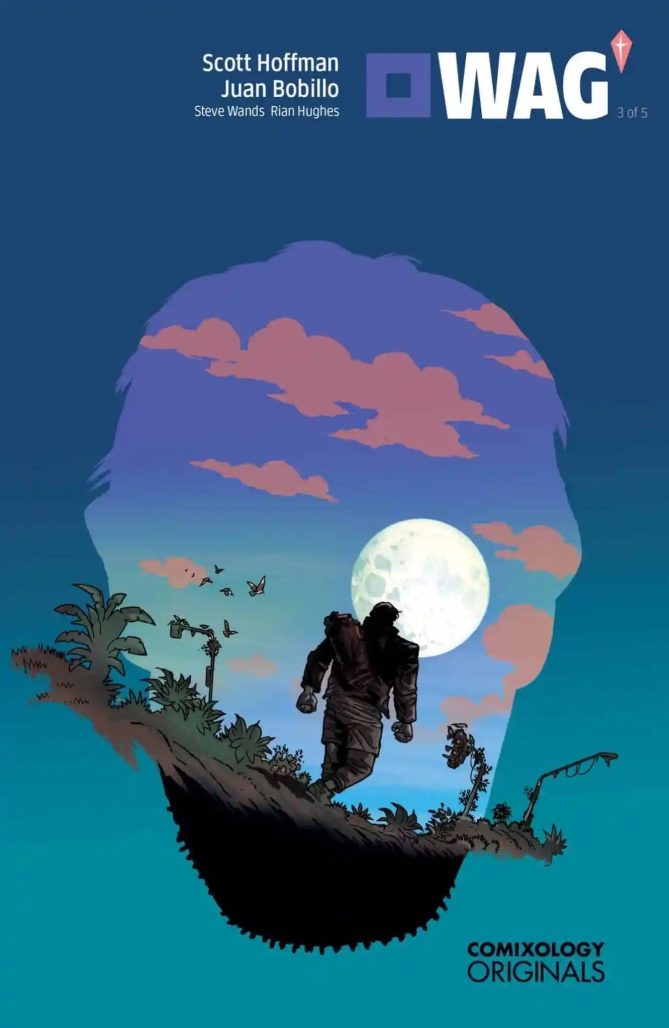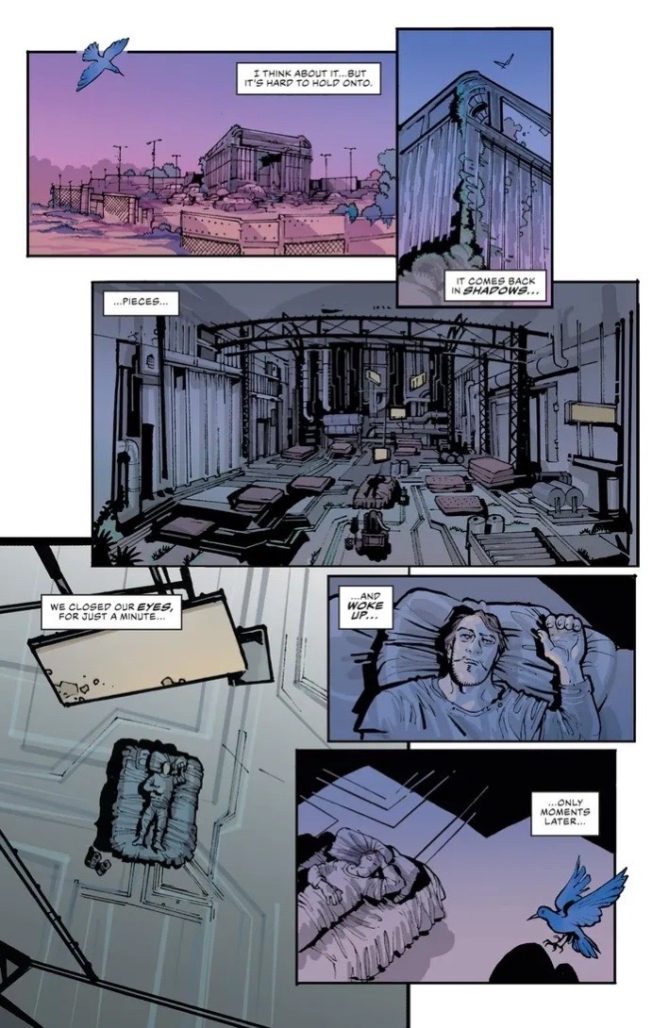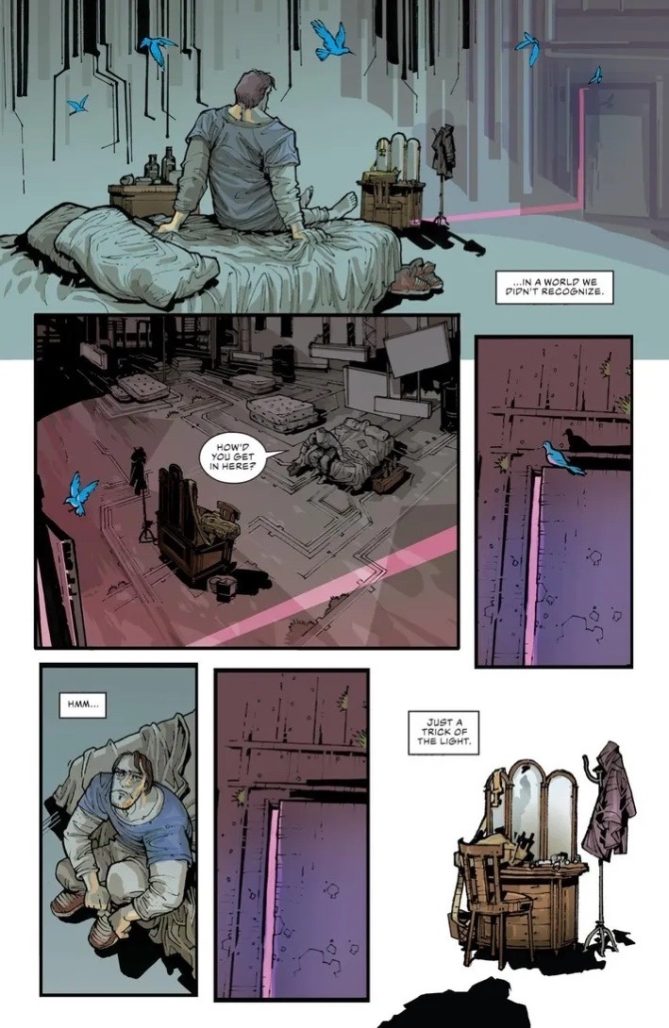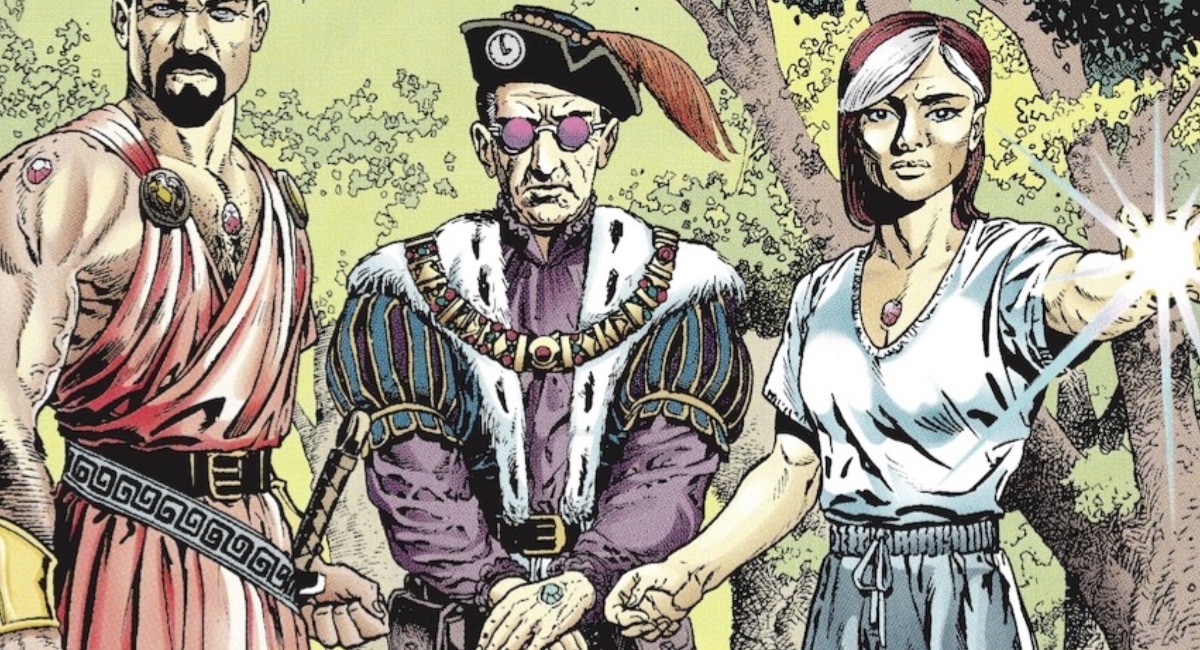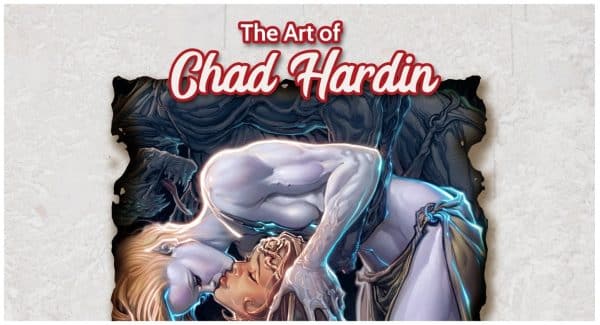By Noam Steinerman
Scott Hoffman is new on the comics scene with his debut Nostalgia and Wag Comixology Originals. A writer, composer, and performer, Hoffman is an award-winning musician who goes by the stage name Babydaddy and is part of the glam rock band Scissor Sisters.
This interview has been edited for clarity.
Noam Steinerman: Scott, it is great to have you. Let’s dive into your latest ComiXology series, Wag. Issue #4 left us on a cliffhanger, and seeing the story unfold is exciting.
Scott Hoffman: Thanks for having me. It’s been a journey, and I’m thrilled to discuss it.
Steinerman: Absolutely. I revisited issue #4 before our conversation, and it got me thinking about the various influences on your work, especially in animation.
Hoffman: For sure, animation has played a significant role in shaping my approach to storytelling.
Steinerman: How do you see those influences coming through in Wag?
Hoffman: Well, it’s all about capturing that dynamic and exciting movement you often find in animation. I aim to bring that energy to the panels.
Steinerman: You revealed Wag at San Diego Comic-Con this past summer on the “Music and Comics Collide” panel. How was the comic-con experience?
Hoffman: It’s been a blast. I’ve enjoyed interacting with the community and sharing insights about my work. I saw you interviewed Jock at New York Comic-Con. Jock is incredible. I’ve been tempted to collaborate with him, but you want to approach these things thoughtfully, especially with an artist of his caliber. Right now, I’m focused on building my presence in the comics world.
Steinerman: Absolutely. It’s a journey. On that note, let’s talk about your transition from music to comics. How does the creative process differ for you?
Hoffman: It’s a shift. In music, you get immediate reactions from live audiences, but in comics, it’s more about releasing the work and hoping readers connect with it over time. I’ve always enjoyed that personal connection, whether through music or comics.
Steinerman: What comics influenced you growing up
Hoffman: I had a comics drawer and read all kinds. I always picked up Batman single arcs here and there. I discovered a love for sci-fi and horror in comics, especially with Alan Moore and Vertigo titles. Preacher was pivotal, showing me comics could be crazy, violent, and thoughtful. It felt like adult storytelling.
Comics were one of many things I would fall into and get obsessed with. That’s why sometimes I say I don’t know if I’m the typical comics fan because I wasn’t obsessed with a particular story. I just loved picking up an entire graphic novel and reading it. The weirder, the better.
Steinerman: What made you realize comics were more than superheroes?
Hoffman: Preacher, definitely. It was crazy, violent, thoughtful, and felt like it wasn’t for kids. The religious themes were on the edge, and it felt like I was reading something I shouldn’t be.
Steinerman: In Wag, you tackle real fears, like the fear of losing access to essential medication. What inspired that?
Hoffman: The pandemic made me confront real fears. The idea of the entire system breaking down and not having access to necessities was a genuine fear. Stories help us confront scenarios in our heads and prepare for them.
Steinerman: How does storytelling in music differ from comics?
Hoffman: In music, you have limited time to convey a feeling. Songs are about mood and emotion. Writing long-term stories is like making an album. Engaging people for an extended period is a challenge. Music allows more abstract thinking. There’s more freedom; you don’t need to engage for as long as you do with written stories. Stories, even in webcomics, require a commitment to keep readers interested.
Nostalgia #1-5 and Wag #1-4 are available to read on ComiXology. Wag issue #5 will be available on January 9, 2024.


